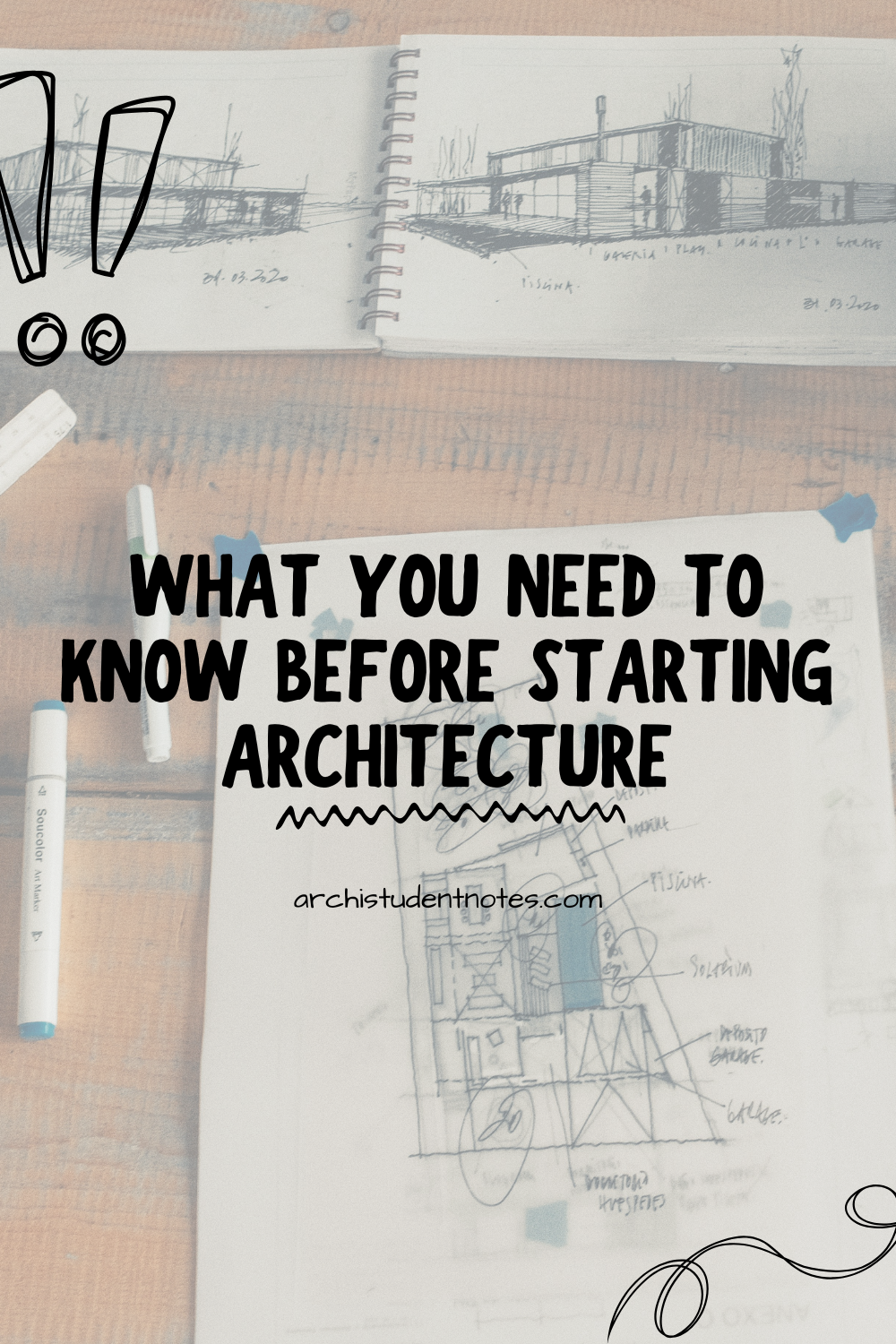Part Time Jobs as an Architecture Student - Money or Experience?
University is expensive. Not only considering the money you don’t even see like the tuition fees in your name going straight to the university or the maintenance loans which you see for a very short amount of time before you pay for your student accommodation. I am talking about the extra money, the money you might need to bump up your accommodation fee as the maintenance loan just doesn't cover it or just to cover the basics, food, social life and of course as an architecture student, model materials, printing, equipment, portfolios.
One way or another, your life needs to be funded and for a lot of students, getting a part time job either over the summer to save for the academic year or a part time job during term time, is the only way.
If this sounds like you, then welcome 🙂
I hope this are helpful and if you have anything else to add, please write them in the comment box right at the bottom of the page. It would be very helpful for everyone else reading this too!
Enjoy! :)
Why architecture students are special
So part time jobs as a university student,…more specifically, an architecture student. I make the distinction not just because archistudentnotes is for architecture students but because the time and commitment of architecture students is, from my experience, and from various accounts online, very different from other university students. Architecture students generally have less time outside of their standard university hours as the course tends to primarily be coursework based on top of your standard university hours in studio, seminars or attending lectures. This means that your part time job needs to work around the time commitments of all that, which can be difficult to find.
You can go down one of two routes with your part time job search. The job that pays the bills or the job that furthers your career or develops your skills in one way or another. To give examples, a job that pays the bills could be working in retail or in a bar, yes there are transferrable skills such as communication and organisation, but a job working part time in an architecture firm or a different creative industry would more than likely do more to develop your skills overall as an architecture student. The latter however, could require more commitment and focus which could impact your architecture course.
The Jobs that pay the bills
Lets look at the job that pays the bills first. In a previous post, we looked at 3 things to look out for in these types of jobs to get the best out of them without negatively impacting your architecture course. They were Flexible Hours, Monotonous Tasks and Short Shifts and these were primarily based on my past experience working throughout my Bachelors and Masters of Architecture degrees with part time jobs. After a couple of years I finally found the best option, working as a Welcome Assistant for the Student Union and it was the best because it has those three things.
The flexible hours allow you to basically choose when you work which is truly a gift when you are an architecture student. Week to week it is great for working around your university contact time, over the academic year it means you can avoid working around your deadlines and double down during quiet times.
The monotonous tasks allow your brain space to think. Creative thinking is so important especially for your studio courses, the best ideas could come to you whislt your packing shelves or serving drinks, talking to customers about something random. Monotony can provide the space.
Short shifts, like flexible hours, mean you have more time around your paid work to focus on your architecture work. Short shifts for me were about 4 hours, this meant I could attend a lecture or seminar or get some work done in the morning and then go to my paid work afterwards, or vice versa. To you and to different companies, short shifts can mean different things but the important thing here is flexibility.
examples of jobs that fit this criteria are:
Student Support Jobs - Preferably working for the university as they should have a better understanding your study commitments
Tutoring - With the right skills and knowledge you can tutor anyone. A Primary school student needing extra help in maths, a GCSE music student, an architecture student in a particular software. You just need to find them and reach out.
Anything Freelance - This is vague on purpose, because it is based on whatever you are good at and if there is a demand for it
Babysitting - A classic, easiest is friends and family but if that is not possible a quick search will bring up loads of different agencies
Uber/Food Delivery - Very flexible, using your own car or for food delivery, could use a bike as well.
The Jobs That Build Your Career
While short shifts, monotonous tasks, and flexible hours are ideal in the ‘bill-paying’ jobs, you won’t often find the same qualities in more creative or career-focused roles. Flexibility and shorter hours are usually tied to shift work or zero-hour contracts, and monotony isn’t what you want when you’re trying to build your skills. In a creative job, whether it’s an architectural assistant placement, freelancing for an interior design studio, or supporting a photography firm, the goal is to stay switched on and engaged. The work should challenge you, inspire you, and ideally give you enough creative energy during working hours to spark fresh ideas outside of your work hours.
In these jobs you are ideally looking for, Contacts/networking opportunities, the opportunity to focus on at least 1-2 skills and ideally flexibility
Contacts and the opportunity to network is first on my list because of how important/impactful having contacts in an industry even remotely similar to yours can be. This can be helpful for when you have graduated or over summer when you are looking for a full time job or as your career progresses and you are looking for mentors.
The opportunity to focus on at least a couple of skills allows you to make a huge impact on your architecture and creative learning outside of your study time, whilst also getting paid to do so which is obviously a win-win. This could be drawing, designing, model making or other skills that indirectly help you become a better designer such as building on your communication skills.
Flexibility can be hard to come by but should be an important factor in your search as you need to be careful with how much time you dedicate to this job and how much it impacts your architecture degree. Comparing this to the standard part time university student job, the shifts might not be as short, you might not be able to choose when they are, the tasks might take more of your brain space and in true architecture and design mindset, you might think about things past clock-out time. If you are truly dedicated to this job and it is helping you either financially (as these jobs could pay more) or professionally (skill discussed before), you can make this work with good time management and by remembering what the goal is… graduating (and learning as much as you can in the lead up to it).
Creative Job Examples
Architectural assistant placements - A very good option if the goal is to one day work in an architecture office. This provides the opportunity to learn exactly what architects do and potentially lay some groundwork for a job later down the line/
Freelance rendering or CAD drafting - If you have developed particular skills to the point that you can offer these out to firms, then this is a great opportunity to make extra money. Target smaller firms where there might be 1-2 staff, as they might in need of the extra support
Interior design studio support - Your skills as a designer should not be overlooked, you have something to offer and this is particularly useful if you are interested in interior design as you will get to see first hand what it is like to work in the sector.
Photography or creative agency work - Similar to interior design studio support, but potentially a bit more flexible. A good example would be to set up or work for a photography firm. Maybe it is you taking the photos or you are in post-production.
So, which to choose?
There is no right answer. It completely depends on what you need and what you hope to get out of your part time job.
If you need a reliable income with flexibility and brain space to focus on your architecture degree, focus on the more ‘just for money’ roles. You will more than likely gain transferrable skills too.
If you want to use this time to start building your career early whilst still at university, focus on the skill-building roles. Time management will be more important to ensure you have enough time and steam to focus on your architecture degree, but you should leave university or finish the academic year having learnt or developed different skills with ideally, some contacts as well.
You can also do both! This requires more work in getting the jobs on your part but can be really beneficial when you look at the year as a whole. The standard part time and flexible job during the academic year and the skill building focused creative job during the summer.
Whether you start in retail or land a placement in a design office, remember that every experience can add value. The real goal is making it through architecture school with your degree, your creativity, and your sanity intact!
I hope this was helpful for you and if you have any more ideas or comments, please feel free to leave them below.
Thanks for reading! I hope this post helped you in way you needed it to!
If you’d like more guidance, I offer 1:1 tutorials available here or you have a question or a topic you’d like me to cover, drop me a message or fill out the form below - I’d be happy to write a blog post or create a resource to help you out!
















